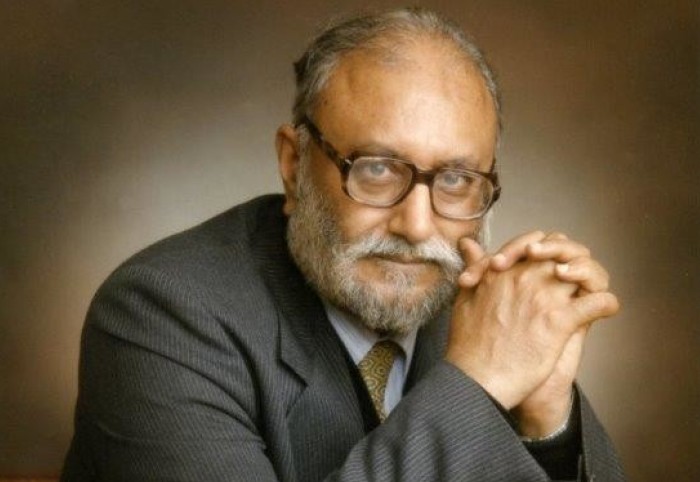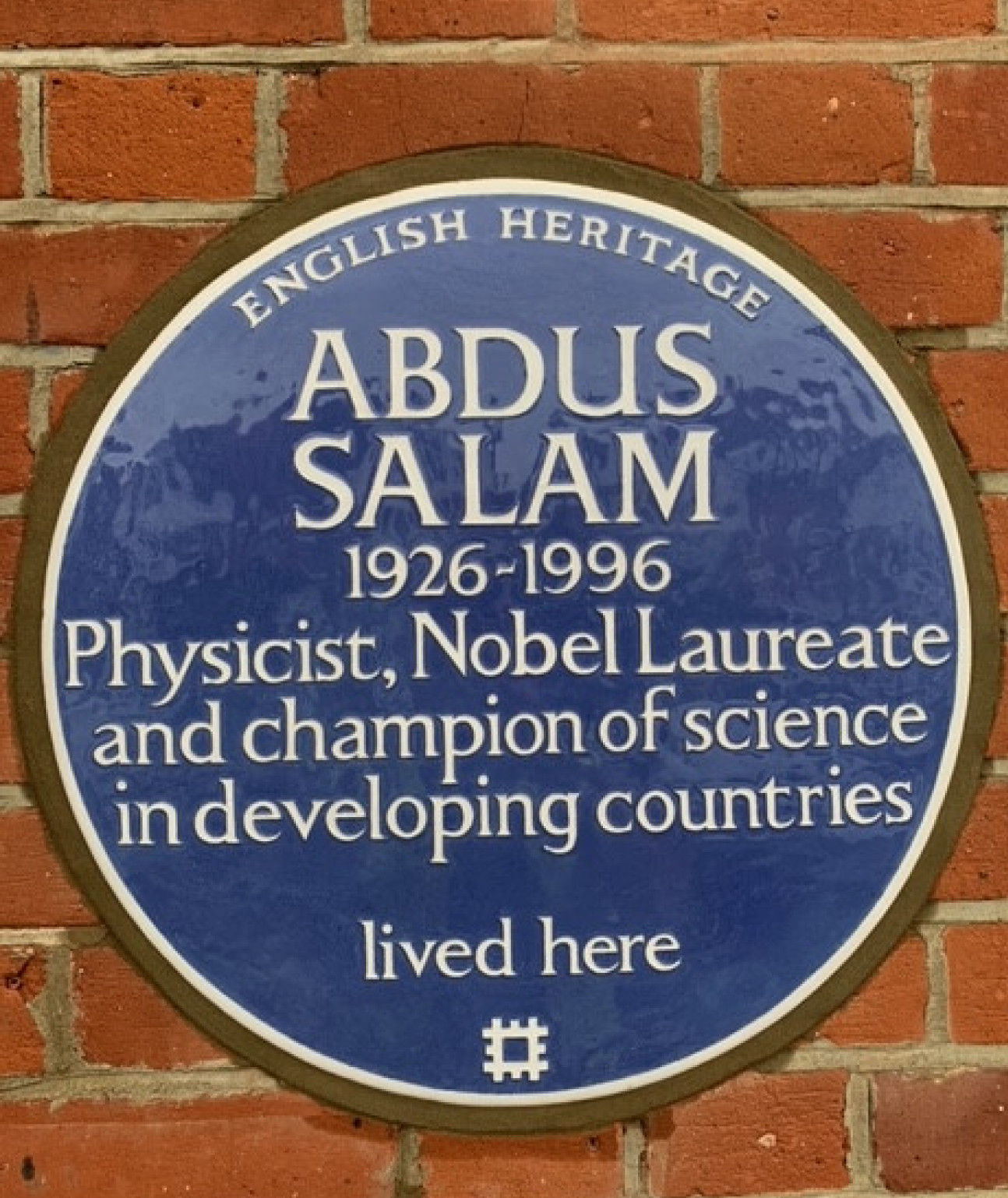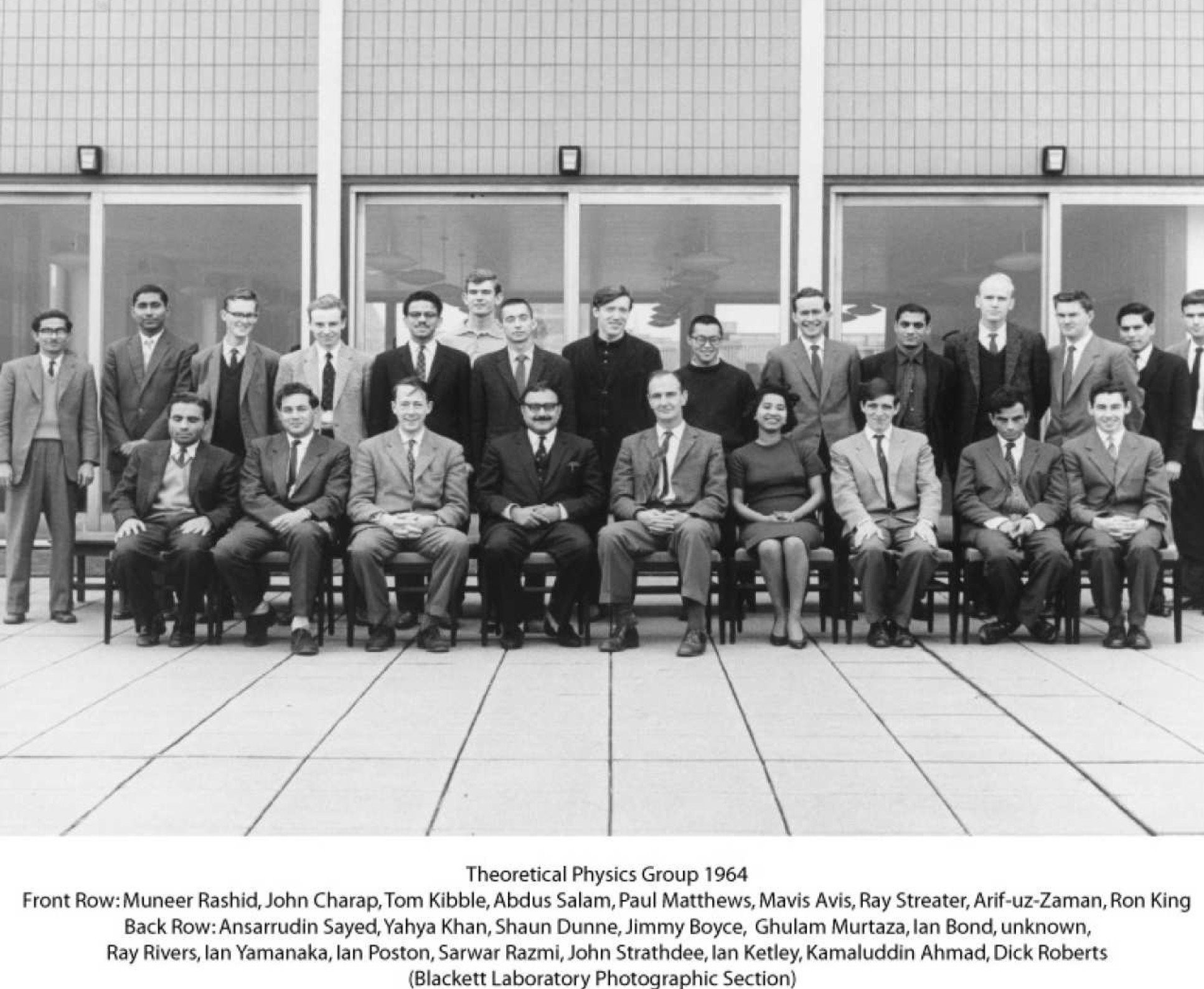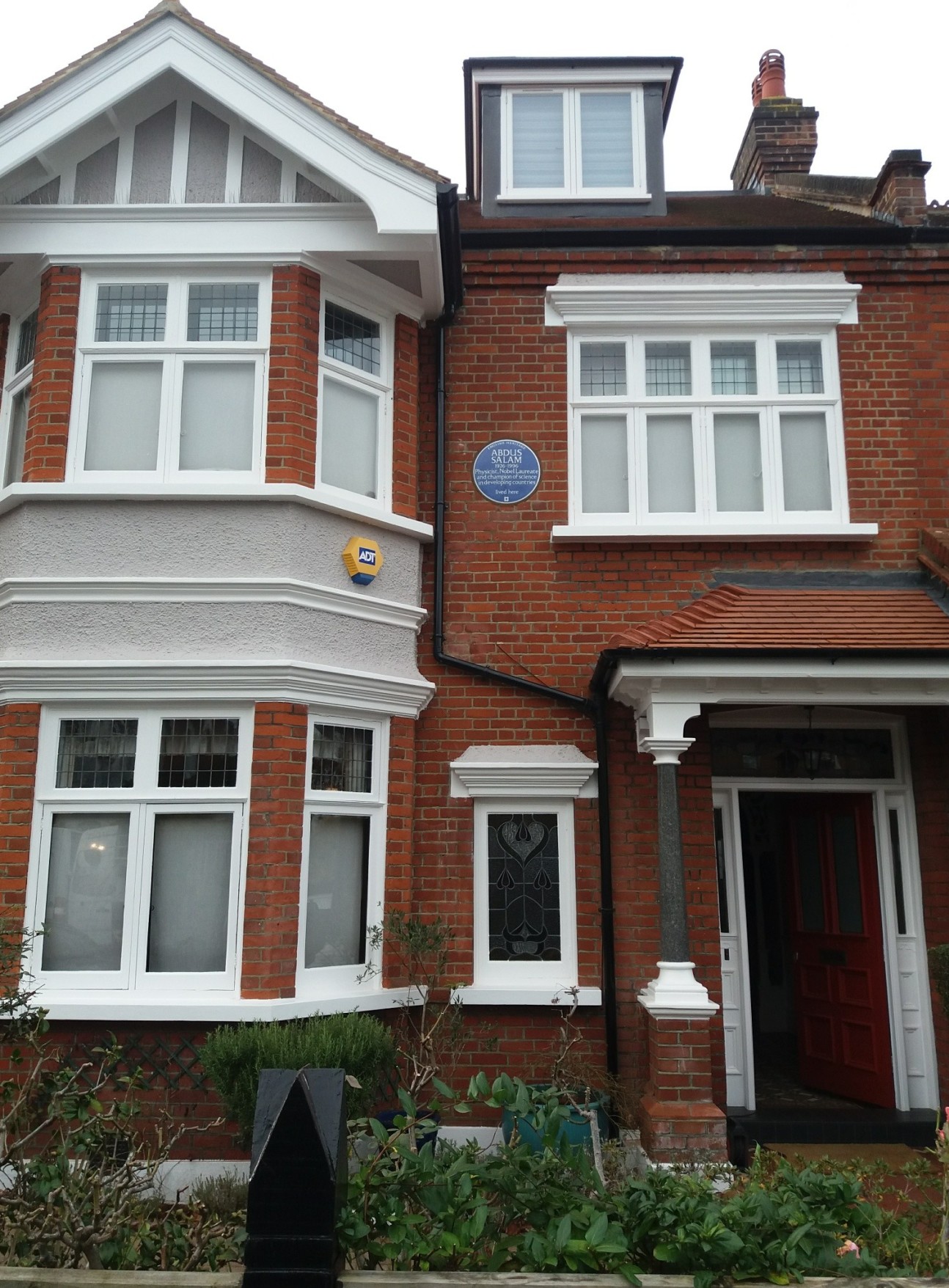Blue Plaque unveiled for Nobel Prize-winner Abdus Salam

English Heritage have unveiled a Blue Plaque to mark the home of Professor Abdus Salam, who founded the Theoretical Physics Department at Imperial.
The plaque has been installed on Professor Salam’s house in Putney, which he used as his base in London from 1957 until his death in 1996. This coincided with his time at Imperial, during which he set up the Theoretical Physics Department with the late Professor Paul T Matthews.
 He was awarded the Nobel Prize for Physics in 1979, alongside Sheldon Glashow and Steven Weinberg, for his contribution to the electroweak unification theory. Professor Salam was also a passionate promoter of science education in the developing world, founding the International Centre for Theoretical Physics (ICTP) in Trieste, Italy, in 1964, where scientists from developing countries would be able to come on a regular basis to interact with leaders in the field.
He was awarded the Nobel Prize for Physics in 1979, alongside Sheldon Glashow and Steven Weinberg, for his contribution to the electroweak unification theory. Professor Salam was also a passionate promoter of science education in the developing world, founding the International Centre for Theoretical Physics (ICTP) in Trieste, Italy, in 1964, where scientists from developing countries would be able to come on a regular basis to interact with leaders in the field.
Professor Michael Duff, from the Department of Physics at Imperial, completed his PhD in 1972 under the supervision of Professor Salam, and formerly held the title of Abdus Salam Professor of Theoretical Physics.
He said: “A blue plaque on the house in Putney where he lived for 40 years is a fitting tribute to Nobel Laureate Abdus Salam, who was not only one of the finest scientists of the twentieth century, having unified two of the four fundamental forces of nature, but who also dedicated his life to the betterment of science and education in the developing world.”

Imperial’s Provost, Professor Ian Walmsley, was also taught by Professor Salam while a student at Imperial in the 1970s. He said: “Abdus Salam’s contributions to physics were profound, and his commitment to science deep, as exemplified by his founding of the International Centre for Theoretical Physics in Trieste, which has the aim of building science capability and capacity in the developing world.”
Contribution to physics
Professor Salam was born in 1926 in what is now Pakistan, and came to the UK in 1946 to study at the University of Cambridge, where he gained his PhD. In 1957, he was appointed Professor of Applied Mathematics at Imperial. His work concerned quantum electrodynamics and quantum field theory, and he contributed to the formulation of the ‘Standard Model’ of particle physics.
To be honoured in this way would have been truly humbling to a man who believed ‘scientific thought and its creation is the common and shared heritage of mankind.’ Ahmad Salam Professor Salam's son
Physicists believed that there were four fundamental forces of nature: the gravitational force, the strong and weak nuclear forces, and the electromagnetic force. Salam worked on the unification of these forces, and successfully showed that weak nuclear forces and electromagnetic forces could be converted into each other – the ‘electroweak unification theory’ for which he was awarded the Nobel Prize in Physics.
The Standard Model uses this theory to describe the nuclear and electromagnetics forces, as well as to classify all known elementary particles. However, it is unable to incorporate the force of gravity, which is still an outstanding problem in physics.
Science advocacy
As well as founding the International Centre for Theoretical Physics, Professor Salam worked to promote science in his native Pakistan, such as with the International Nathiagali Summer College (INSC), an annual meeting of scientists from all over the world who come to Pakistan and hold discussions on physics and science.
 He was also scientific advisor to the Ministry of Science and Technology in Pakistan from 1960 to 1974, during which he was the founding director of the Space and Upper Atmosphere Research Commission (SUPARCO), and responsible for the establishment of the Theoretical Physics Group (TPG) in the Pakistan Atomic Energy Commission (PAEC).
He was also scientific advisor to the Ministry of Science and Technology in Pakistan from 1960 to 1974, during which he was the founding director of the Space and Upper Atmosphere Research Commission (SUPARCO), and responsible for the establishment of the Theoretical Physics Group (TPG) in the Pakistan Atomic Energy Commission (PAEC).
Abdus Salam’s son, Ahmad Salam, said: “The fact that most of the plaque is taken up with the words ‘champion of science in developing countries’ would have made my father very happy. For him, above all else, that was the legacy he wanted to impart.
“To be honoured in this way would have been truly humbling to a man who believed ‘scientific thought and its creation is the common and shared heritage of mankind.’ This was a belief fully supported by the ideals, freedoms and values he found here in England. He loved the intellectual freedom, the religious freedom and the respect for people of education.”
In 2018, a documentary film about Professor Salam's life was released titled 'Salam - The First ****** Nobel Laureate'.
Article text (excluding photos or graphics) © Imperial College London.
Photos and graphics subject to third party copyright used with permission or © Imperial College London.
Reporter
Hayley Dunning
Communications Division